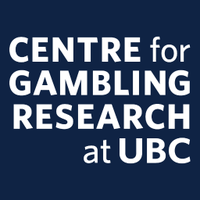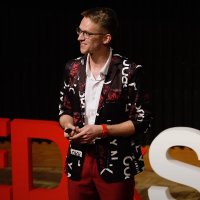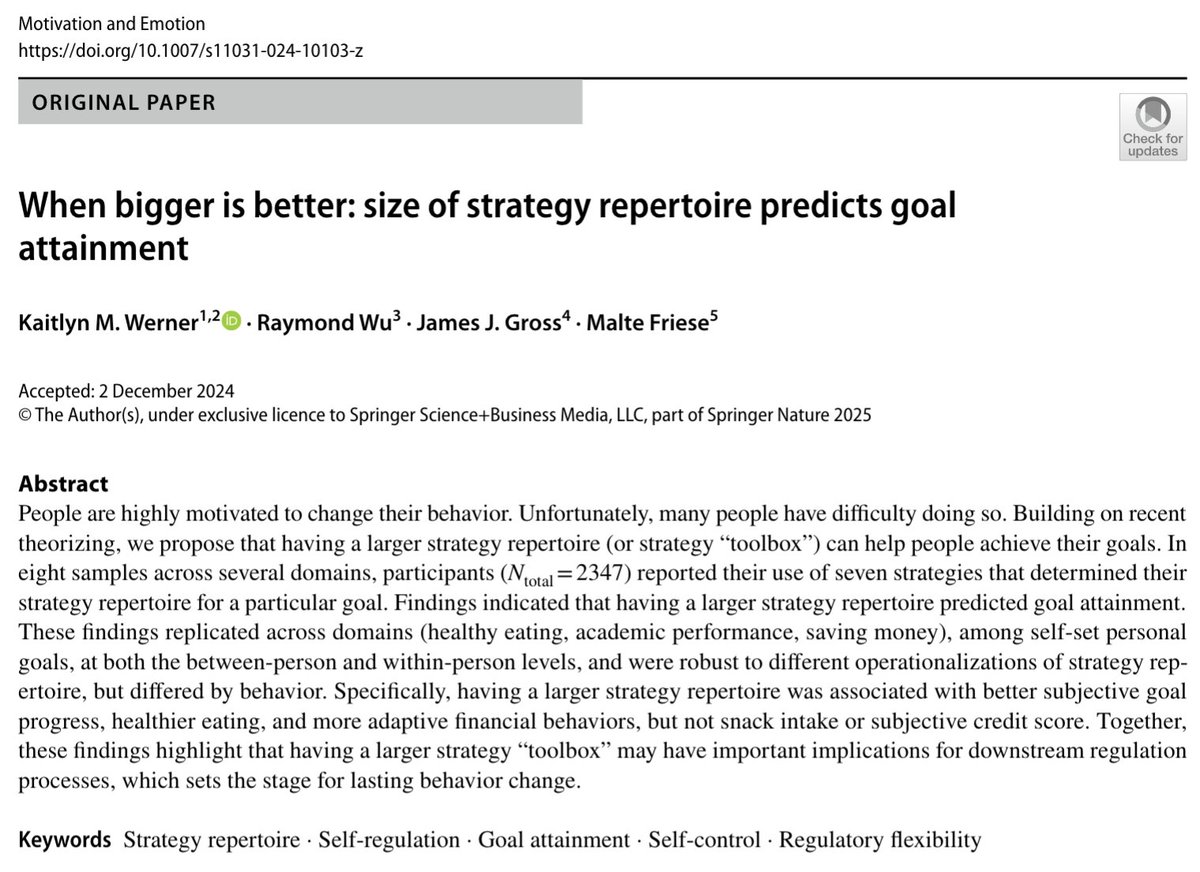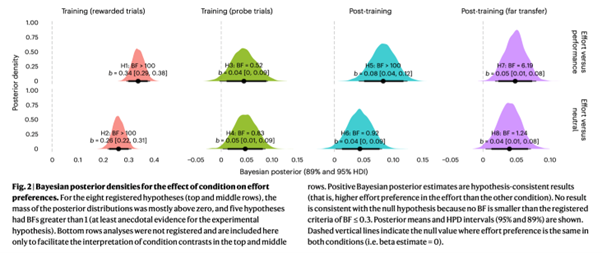
Raymond Wu
@rayrwu
PhD student @UBC. Exploring decision-making, digital technology use, & addiction @CGR_UBC. Alum @UofT.
ID: 1527859126469922816
https://raymondwu.ca/ 21-05-2022 03:50:09
31 Tweet
94 Followers
111 Following

New publication!!💪👇 Our paper with Ben Prissé has been accepted at the Journal of Behavioral and Experimental Economics Loyola Behavioral Lab Loyola Investigación LoyolaEcon



Interested in micro-analysis of slot machine gambling behaviour, realistic slot simulations, OR real-world aspects of habit formation?? Check out Mario Ferrari’s new paper in IGS w Eve LimbrickOldfield , available OA tandfonline.com/doi/full/10.10… 🧵 1/n UBC Psychology Djavad Mowafaghian Centre for Brain Health

Have you ever wondered what features of studies science journalists pay attention to when deciding whether to report on a finding? I did! So I asked some of them, with help from my wonderful collaborators simine vazire, Mijke Rhemtulla, and Christie Aschwanden. psyarxiv.com/26kr3/ 1/8


🚨New pre-print with Raymond Wu Malte Friese! In 8 samples (n=2k+) across several domains, we examined if strategy repertoire predicts goal progress. Inspired by the emotion regulation literature, we also compared different strategy repertoire indices ➡️psyarxiv.com/5uvxg 1/7


🚨 New paper in Trends in Cognitive Sciences with Celeste Kidd! We review evidence that certainty is a valuable learning signal even for very young children. Short 🧵below, and article here: authors.elsevier.com/a/1fie2_V1r-LM…


FIRST FIRST-AUTHOR PAPER ACCEPTED!! 🥹 Jamil Zaki and I argue in Trends in Cognitive Sciences that people easily get trapped in a cynical mindset. People can overestimate others' self-interest, create it through their expectations, or overstate their own to not appear naïve. 1/6





Effort feels meaningful (w/ Aidan Campbell) sciencedirect.com/science/articl… "Perhaps effort’s felt meaningfulness is a cultural product that sustains the perceived legitimacy of unequal societies...Does the concept of merit require that people internalize belief that effort pays? 1/2

Today, we’re introducing a new model that eliminates accept/reject decisions. By publishing every paper with eLife reviews as a Reviewed Preprint, we plan to restore autonomy to authors, ensuring that they will be judged by what, not where, they publish. elifesciences.org/inside-elife/5…

New PREPRINT from Martin Zack and me Luke Clark on PsyArXiv: “Engineered highs: reward variability and frequency as prerequisites for behavioural addiction” UBC Psychology Djavad Mowafaghian Centre for Brain Health mini-🧵👇 psyarxiv.com/g57c2


📢Strange time to have a paper published… but just out today in CiHB, Gabriel Brooks and me Luke Clark: The gamblers of the future? Migration from #lootboxes to #gambling in a longitudinal study of young adults UBC Psychology Djavad Mowafaghian Centre for Brain Health 🧵⬇️ doi.org/10.1016/j.chb.…



Thrilled to finally have this paper officially out! Across eight samples (n=2k+), we find that having a larger strategy repertoire can benefit goal attainment. We also discuss challenges with measuring repertoire and flexibility more broadly. w/Raymond Wu J. Gross & Malte Friese





